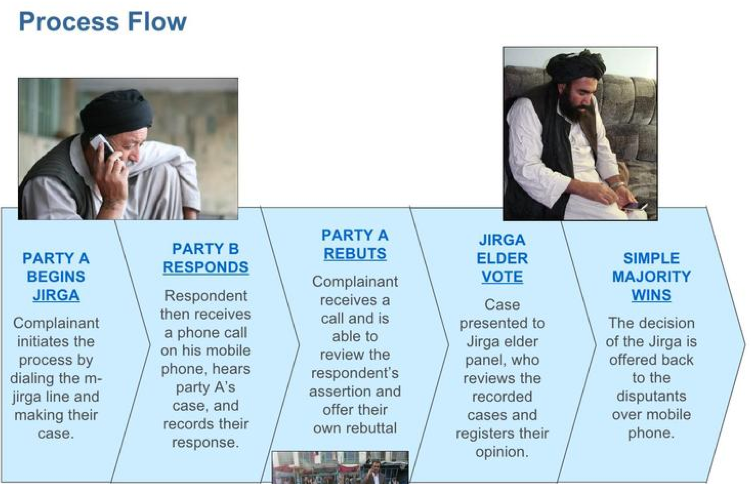The Internet Silk Road’s Land Dispute Resolution research began in early in 2010. Our aim through this research is to identify creative ways in which mobile technologies (specifically, simple GSM mobile phones) could be used to help rural Afghans resolve ambiguities and low-level disputes over land.
Land in Afghanistan has long been a source of conflict, replete with conflicting central governmental policies, varied levels of local enforcement, corruption, ethnic and gender tensions, and poor record keeping. Numerous efforts have been implemented over the years to perform comprehensive and definitive surveys of the country with mixed, and always incomplete, results. Deeply ingrained mistrust of the central government, both in executive and judicial form, has further complicated attempts both at land registry and the resolution of land disputes. The weaknesses of the central Afghan government, alongside the breakdown of traditional dispute solutions has exposed a growing need for initiatives like Internet Silk Road that draw on both local, informal practices and federal, formal ones. Similar projects have seen marked success at garnering community support, when both judges and Jirgas have been unable to provide answers. We believe that the Internet Silk Road project can greatly improve on previous attempts at alternative resolution of Afghan land disputes, and make great strides in establishing community support for the rule of law.
The proposed Internet Silk Road project aims to provide a vitally important service to Afghan communities at a time when the need for clearly defined land tenure is a growing concern for both foreign and domestic interests in the country. ISR will seek to capitalize on the renewed interest in creating an online, digital registry of deeds, working with the groups developing such a registry and building our dispute resolution system into the structure of the registry process itself. First, a comprehensive, on-the-ground evaluation of local legal systems must take place. Without fully understanding the various informal systems currently being used, it will be impossible to create a new dispute resolution mechanism that will enjoy public support. Preliminary evidence gathering will begin alongside the assessment and formal surveying of the land for the registry. By collecting data about disputes in these neutral or even positive situations, before attempting any resolution, parties in interest can be more confident of the neutral nature of the registry process itself. Local support is critical: all efforts will fail if parties believe the system is out of their control or designed to disenfranchise them. ISR will work to establish a system that combines the support of the judiciary with the efficiency and community trust of local informal justice mechanisms. By digitizing the evidence gathering process, the record of the resolution proceedings, and the outcomes, this system can be directly integrated into the central online registry. Our hope is that the success of the Internet Silk Road will establish a reliable model of alternative dispute resolution that can advance the rule of law without further burdening the overtaxed judiciary, while providing a valuable solution to immediate problems faced by Afghan communities.
USIP Presentation of ISR Mobile Land Dispute Res
Background on ISR’s Mobile Dispute Resolution research
In 2009, the President of the Internet Bar Organization, Jeff Aresty, collaborated with a group of mediators, conflict resolution experts and technologists to formulate the idea of an M-Jirga, a decision-making body that could resolve disputes between Afghan disputants remotely, via mobile phones, which are ubiquitous in Afghanistan and have exploded in uptake since the overthrow of the Taliban. The presentation below, by Colin Rule, outlines the M-Jirga concept, which paved the way for IBO’s further research in ways to deliver dispute resolution tools to rural Afghans through mobile technologies.
In June of 2010, the ISR team presented our research on a panel of experts at the US Institute of Peace. You can view the USIP’s report from the event, as well as videos of presentations, here:

